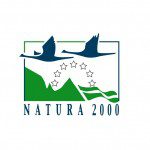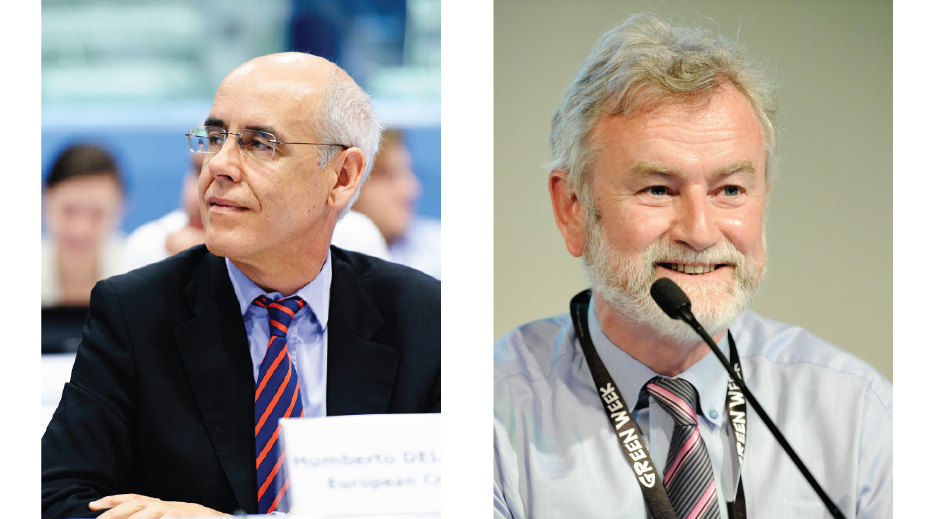How can Protected Areas contribute to the EU Action Plan for Nature, People and the Economy?
http://ec.europa.eu/environment/nature/legislation/fitness_check/action_plan/index_en.htm
Earlier this year, the EU Commission launched a new Action Plan to improve the practical implementation of the Habitats and Birds Directives. Despite the positive evaluation of the EU Nature Directives, biodiversity and ecosystem services loss is still happening at a high pace in Europe. The Action Plan aims to reverse the situation and accelerate progress towards the EU 2020 biodiversity goals. 4 Priorities, 15 concrete measures, and over 100 actions were defined in The Action Plan: for nature, people and the economy, which has already hit the ground and carried out until 2019.

Covering around 18% of land in Europe and 6% of its surrounding seas, the Natura 2000 network ranges from breeding sites for rare and threatened species, to some rare natural habitat types. Protected Areas made a significant contribution to keep these important places for biodiversity, as they are responsible for the management of much of the Natura 2000 network.
How can Protected Areas contribute?
“The focus will now be on making sure that they (the EU Nature Directives) are implemented in the most effective and efficient way to realise their full potential for nature, people and the economy”, said Karmenu Vella, the European Commissioner for the Environment, Maritime affairs and Fisheries, few months before the Action Plan came to life.
Almost 3 months after its launch, there is still some lack of knowledge among Natura 2000 managers. Which tools are being produced by the EU Commission to better support Natura 2000 managers implementing the Directives? Which are the priorities to address and how to be more effective?
To answer these questions, we invited Humberto Delgado Rosa, Director for Natural Capital – DG Environment, to join us in Portugal, at the Plenary Session of EUROPARC Conference 2017. In the morning of 7th September, in Arouca, Mr. Delgado Rosa will introduce the Action Plan for Nature, People and the Economy, and share its priority actions. Delegates will also hear about the latest updates from the European Commission regarding Biodiversity and Nature conservation and get to know the coming opportunities launched by the European Commission.
From theory to practice – A workshop to support implementation
After the speech of Mr. Humberto and the other 4 keynote speakers that will represent some of the new voices and visions for Nature in Europe, delegates will put their knowledge into practice. 16 technical workshops will take place at the Secondary School of Arouca, covering topics from coastal management to health, funding strategies, coexistence with large carnivores or visitor management. Attention is drawn to workshop 6 “The Laws of Nature” as delegates will be looking at the implementation of the Action Plan and the role of Protected Areas.
Micheal o’Briain, Deputy Head of the Nature Protection Unit, DG Environment, will open the debate with a presentation of the Action plan and its pillars/main actions, and a focus on the role of protected areas in its implementation. Then, delegates will learn from the German Länder Mecklenburg-Vorpommern their experience in implementing the Action Plan at a regional level, and hear from EUROPARC Spain the national perspective and actions.

(left) Humberto Delgado Rosa is the Director for Natural Capital and Micheal
o’Briain is the Deputy Deputy Head of Nature Protection Unit – DG Environment, European Commission
With this special participation of Humberto Delgado Rosa and Micheal O’Briain, EUROPARC is providing members the opportunity to have a direct contact with the European Commission
said Ignace Schops, EUROPARC President, adding “we hope members will give voice to their concerns and expectations, but also find the opportunity to share the good examples they have been implementing in the field”. We are sure that the representatives from the EU Commission will be delighted to hear from you!
Read more about Humberto Delgado Rosa and find out the other keynote Speakers at EUROPARC Conference 2017. Registrations are still open! europarc2017.montanhasmagicas.pt
The Action Plan in a nutshell
Priority A: Improving guidance and knowledge and ensuring better coherence with broader socioeconomic objectives
Actions included in this priority aim at dissolving tensions between nature protection and socioeconomic activities, through smarter participatory processes. For that, is aimed: greater involvement with landowners and users; better access to information and data for the implementation of the Directives; and recognition of how healthy ecosystems contribute to well-being and economic development.
Priority B: Building political ownership and strengthening compliance
This priority involves completing the Natura 2000 network, strengthening Member’s states compliance with the Nature Directives and developing action plans for threatened species and habitats.
Priority C: Strengthening investment in Natura 2000 and improving synergies with EU funding instruments
There is a massive gap between costs of implementing Natura 2000 (around 5,8 billion/year) and the benefits arising from it (estimated in 200/300 billion/year). This priority previews in one hand a strong reinforcement in nature – through the support of State members in their financial plans; increase of LIFE programme budget and Horizon 2020; and stimulation of the private sector to take part in nature conservation activities. On other hand, previews better synergies between the Common Agricultural Policy and the Fishery policies; and support on the implementation of green infrastructures and connectivity.
Priority D: Better communication and outreach, engaging citizens, stakeholders and communities
The European Commission together with the Committee of Regions will use all available platforms to raise awareness and promote local involvement and exchanges of knowledge. This priority previews also a higher recognition on good management practices in Natura 2000 areas and the development of the European Solidarity Corps.